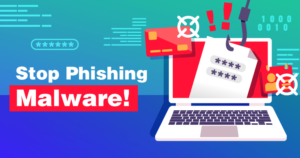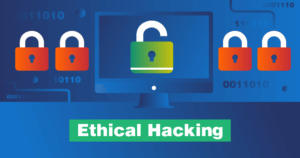$ United States dollar
$ United States dollar€ Euro£ British poundAED UAE dirhamARS Argentine pesoAU$ Australian dollarBGN Bulgarian levR$ Brazilian realCA$ Canadian dollarCHF Swiss francCLP Chilean pesoCN¥ Chinese yuanCOP Colombian pesoCZK Czech korunaDKK Danish kroneEGP Egyptian poundHK$ Hong Kong dollarHUF Hungarian forintIDR Indonesian rupiah₪ Israeli new shekelINR Indian rupee¥ Japanese yen₩ South Korean wonMX$ Mexican pesoMYR Malaysian ringgitNOK Norwegian kroneNZ$ New Zealand dollarPLN Polish złotyRON Romanian leuRUB Russian rubleSAR Saudi riyalSEK Swedish kronaSGD Singapore dollar฿ Thai bahtTRY Turkish liraNT$ New Taiwan dollarUAH Ukrainian hryvnia₫ Vietnamese DongZAR South African rand

Katarina Glamoslija
Katarina Glamoslija is Lead Cybersecurity Editor at SafetyDetectives. She has more than a decade of experience researching, testing, and reviewing cybersecurity products and investigating best practices for online safety and data protection. Before joining SafetyDetectives, she led several tech websites, including one about antiviruses and another about VPNs. She also worked as a freelance writer and editor for tech, medical, and business publications. When she’s not a “Safety Detective”, she can be found traveling (and writing about it on her small travel blog), playing with her cats, and binge-watching crime dramas.
Published With SafetyDetectives
Staying safe online can be really overwhelmin...

In an era where video sharing platforms domin...
Other Articles
6 Best PC Cleaners 2025: Speed Up & Optimize Your PC
All computers need cleaning from time to time, but not all software gets the job done. I tested a ton of PC cleaners to find the best ones for fixing problems that slow down computers. The best options are antivirus programs w...
Surfshark vs. CyberGhost VPN: Which VPN Is Better in 2025?
CyberGhost VPN and Surfshark are two leading VPNs in . They have strong security and privacy features, exceptional streaming and P2P support, suitability for gaming, and user-friendly apps for all major platforms.
Both VPNs...
How to Buy & Sell NFTs (And Stay 100% Safe) in 2025
Online hackers are heavily targeting NFT artists and collectors, sometimes scamming users out of millions. Many NFT exchanges build their platform using high-level security, but cybercriminals use many different strategies to...
Internet Safety for Teens: How to Stay Safe Online in 2025
The internet is a double-edged sword for teens. It gives them limitless opportunities for learning and socializing, but it also exposes them to risks like doxxing, catfishing, and cyberbullying. As a parent and cybersecurity exper...
Antivirus and Cybersecurity Statistics, Trends & Facts 2025
Naturally, with the vast amount of important information passing from computer to computer worldwide, there has been an increased risk of trojans, viruses, malware, spyware, and other digital threats.
Ransomware Facts, Trends & Statistics for 2025
Being ever-evolving as an attack tool, even the simplest form of ransomware can cost significant time and money, but more severe attacks can deal a crippling blow and even destroy a company completely, sparing no one — not even la...

What Is Phishing? Guide with Examples for 2025
Phishing attacks are a cybercrime where users are tricked into sharing their personal data, such as credit card details and passwords, and giving hackers access to their devices, often without even knowing they've done so. It's es...

Online Security & Safety by Christean Reed + Free Chapter
Online Security and Safety: Cybersecurity Tips to Protect You and Your Family on the Internet by Christean Reed is a newly released book designed to make online security simple, even for the most tech-illiterate people out there...

Ethical Hacking: What It Is and How To Do It
The word “hacking” has a seriously negative connotation, but there is a kind of hacking that benefits us all. “Ethical hacking,” also known as “white hat” hacking, happens with the explicit consent of the organization or website they are targeting to test out the security of their defenses. The process is known as “penetration testing,” or simply “pentesting.”